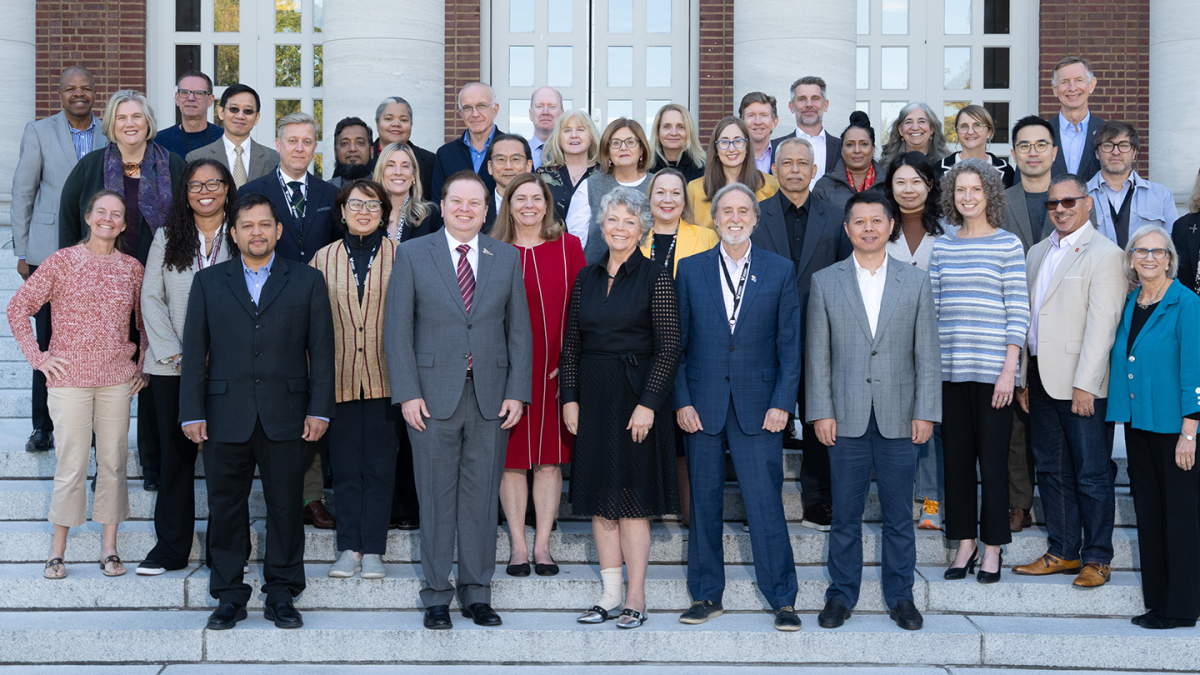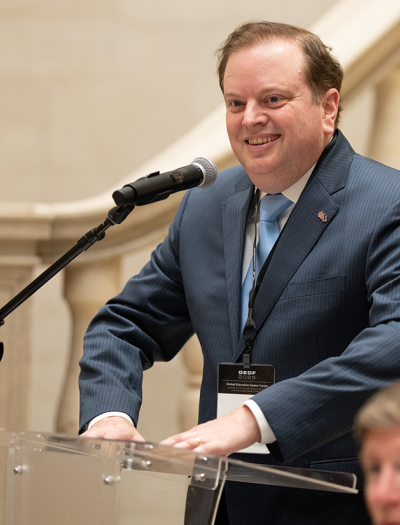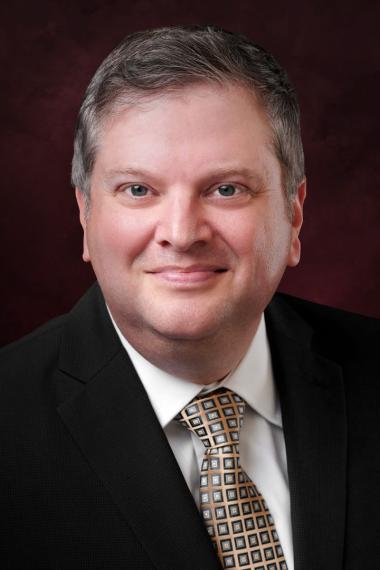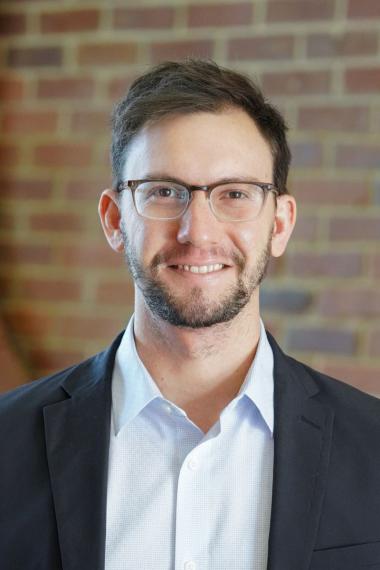Panel 1: Seeding Innovation – AI and Teaching, Learning, and Opportunities in Education
In the first panel session, Hu contributed to an impactful discussion about the role of AI in education. The session also included Alyssa Wise, a professor of technology and education at Peabody and director of Vanderbilt’s LIVE Learning Innovation Incubator. They were also joined virtually by Danny Bielik, president of the Digital Education Council, to explore how AI can serve as an educational tool rooted in critical thinking, while avoiding becoming a path to “cognitive laziness,” a concern raised by Hu.
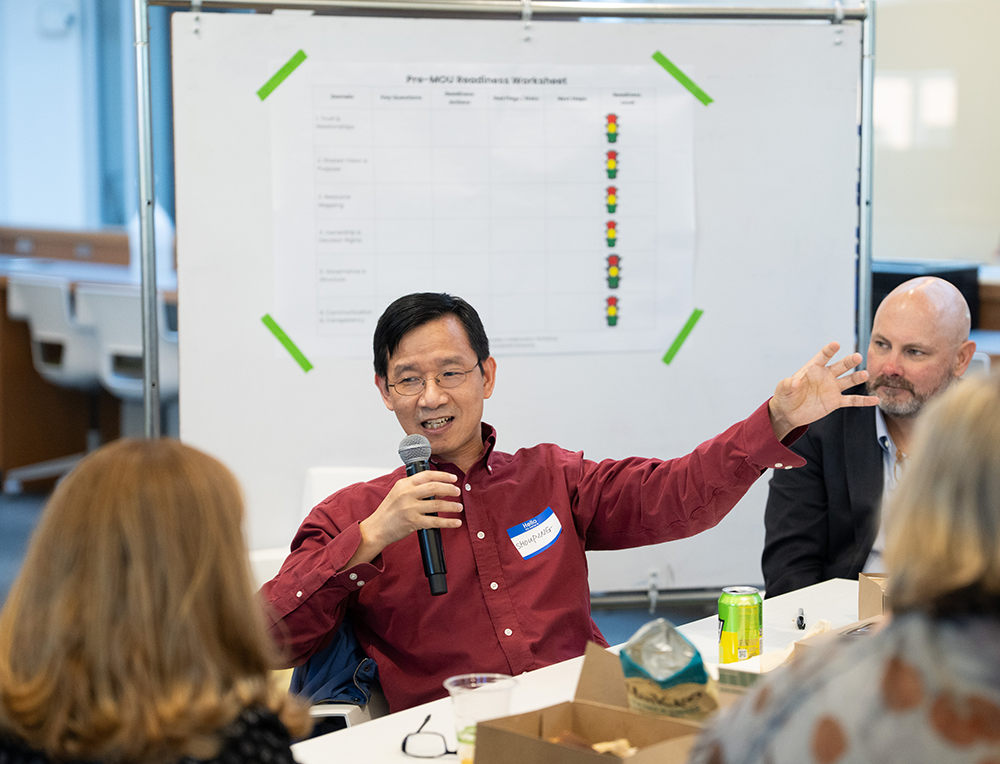
Panel 2: Translational Science – Interplay Between Research and Practice: Embedding Universities in their Communities Through Research Practice Partnerships
In the second panel session, Patton Terry emphasized the urgent need for higher education institutions to communicate the value they add to communities. “Start in your own backyard, communicate your work, and embed research practice partnerships into grants from the beginning,” she advised.
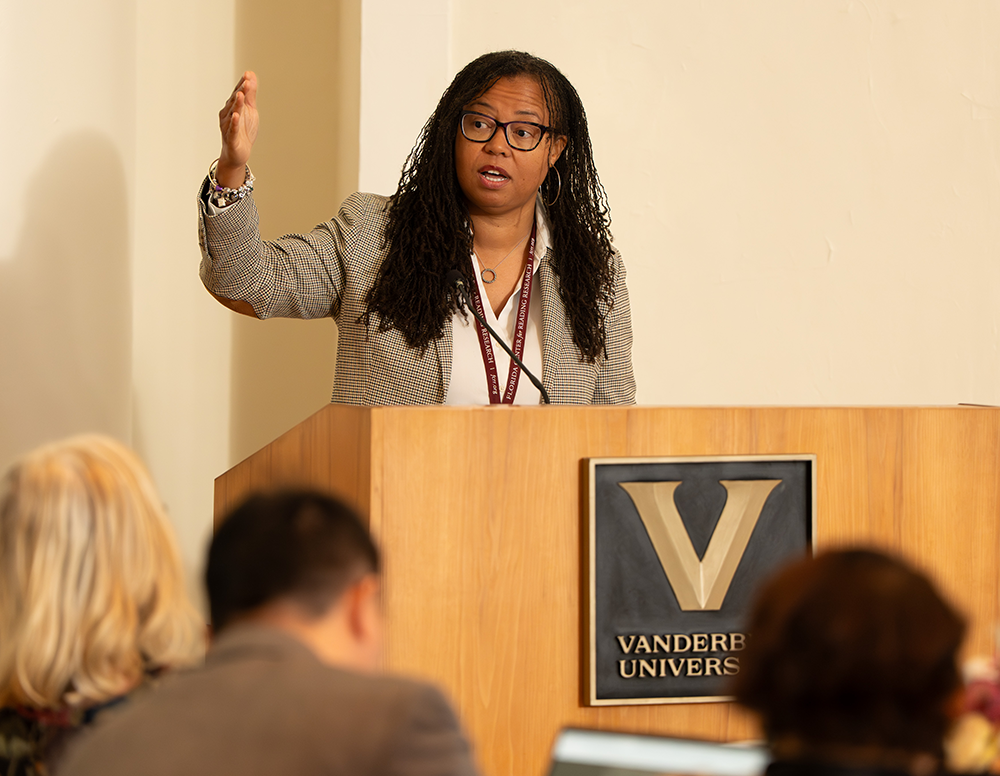
Panel 3: Global Perspectives in Higher Education and the Advancement of AI
Newman was a panelist in the third session, where panelists and guests shared a range of skepticism and excitement around the speed at which AI is entering classrooms. Newman pointed out that before implementing new AI tools into education, it is paramount to think through what humans can do better than AI and vice versa. To reinforce best practices, Yong Zhao, Foundation Distinguished Professor in the School of Education at the University of Kansas, pointed out that it’s important for teachers to let their students know when they’ve used AI effectively.
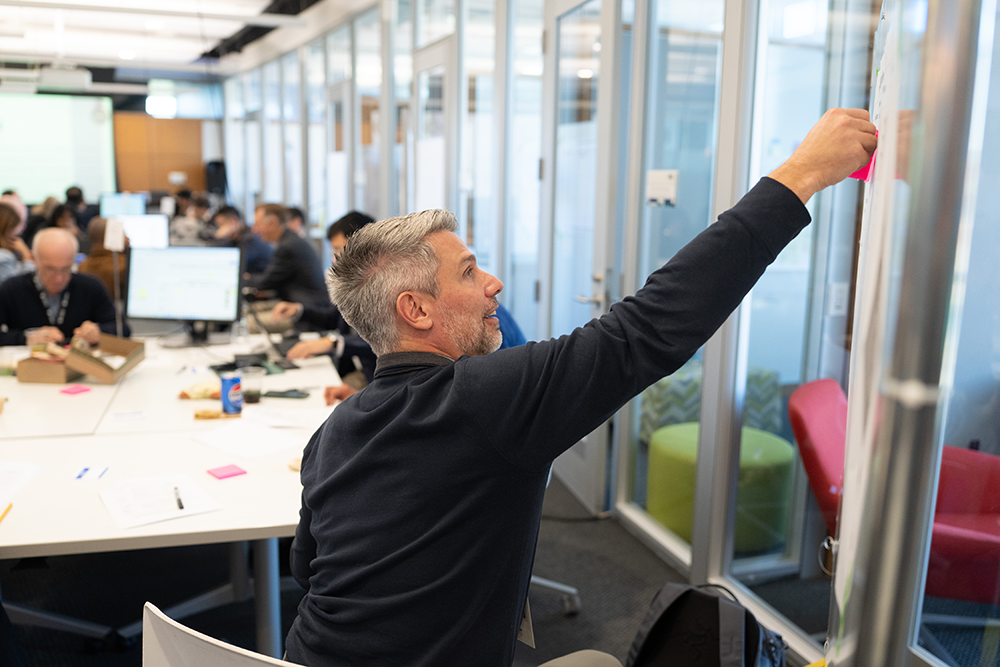
Panel 5: Translational Science – Interplay Between Research and Policy for Impact
Rutledge was a panelist for the fifth session where Cynthia Osborne shared her best advice for translating research into practice: “You have to speak the language of your audience versus the language you are trained in,” she said. Osborne is executive director of the Prenatal-to-3 Policy Impact Center and professor of early childhood education and policy at Vanderbilt. In the same session, James Brasham, professor in the Department of Special Education at the University of Kansas, noted that “we [researchers and educators] operate in an area that’s gray. Legislators are looking for solutions.” Panelists outlined action steps for walking their work from concept to real action with policymakers and communities.
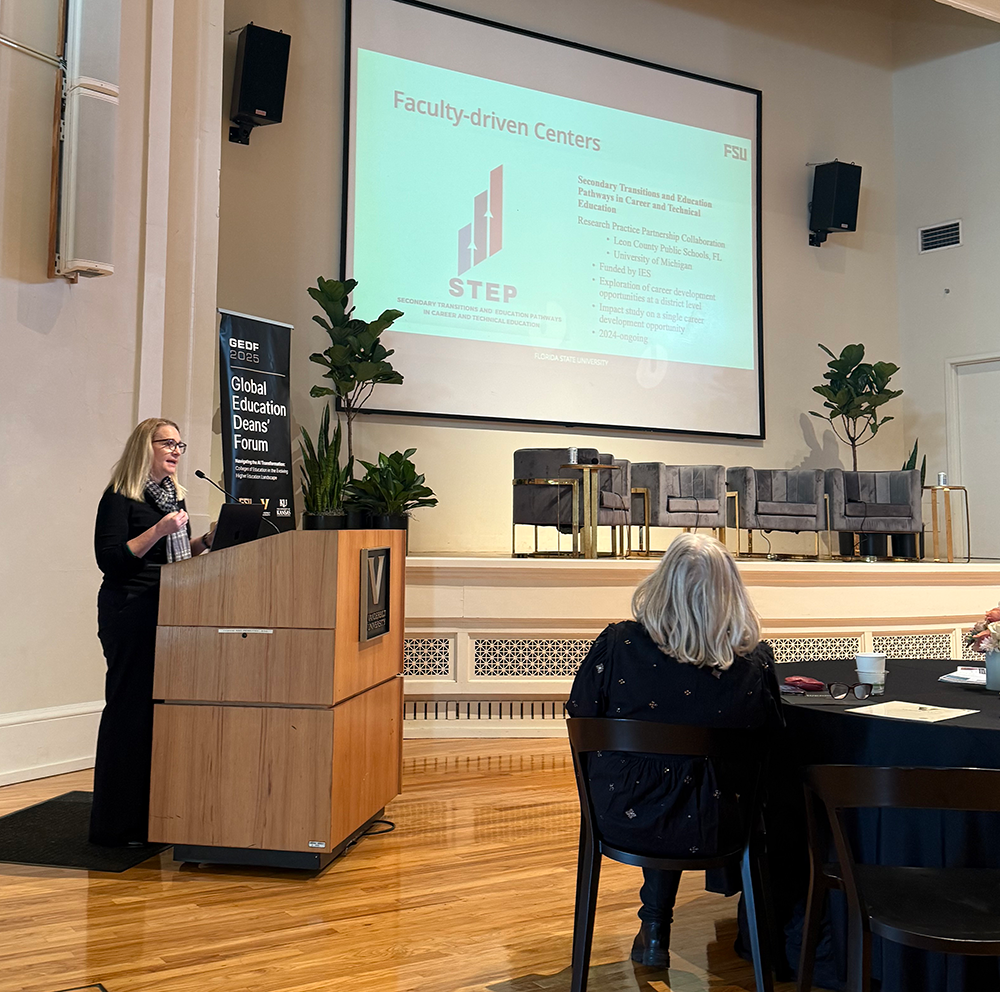
TED Talks: Translational Science – Colleges of Education as Laboratories for Innovation for Teaching and Learning
In an energetic, education-geared take on TED talks, Hall presented on the Seminoles ASPIRE and STRIDES programs. The Seminoles ASPIRE partnership aims to increase the mental health of students attending Florida State University Schools, create practicum experiences for graduate students in counseling and school psychology, and conduct research on mental health and bullying prevention. Similarly, the goal of STRIDES is to provide mental health support for Leon County Schools students.
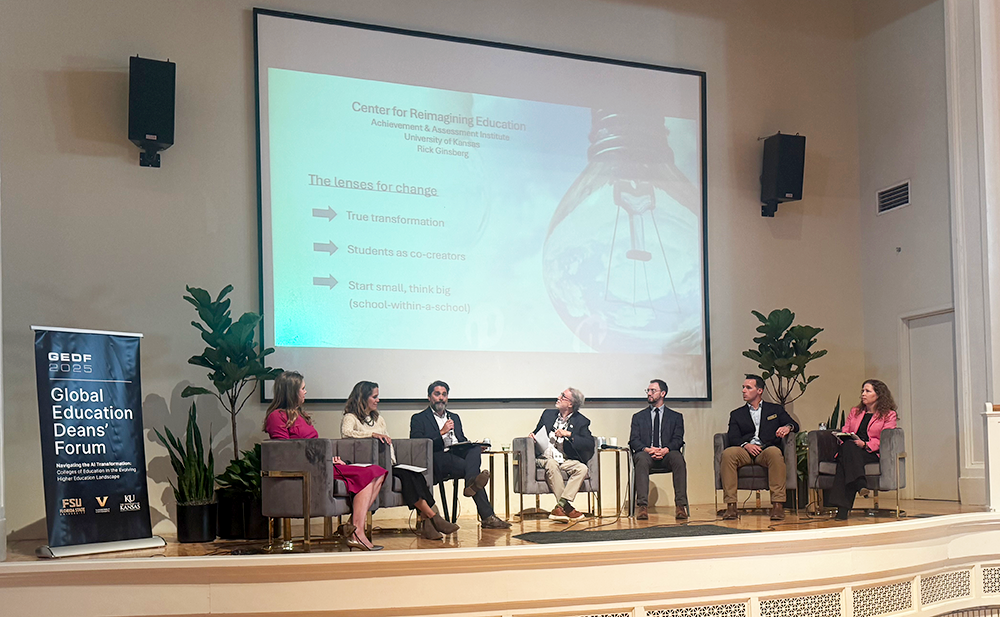
Looking Ahead
Reflecting on the event, Andrew said he was encouraged by the shared commitment among education leaders to use AI as a tool to strengthen human teaching and learning.
“The participating universities are all aggressively working to effectively integrate AI into their curriculum and actively visualizing how Pre-K-20 education will change as a result of AI in the future,” Andrew noted.
The forum concluded with a shared vision among participants: that education must remain human-centered, even as technology continues to evolve.
“My hope for the future of AI in education is that we embrace the technology in a way that enhances teaching, learning, and administration,” Andrew added. “Quality teaching has never been more important in society, and AI is an opportunity for educators to play a leading role to ensure AI has a positive impact on our collective future.”
Read the full Global Education Deans’ Forum press release here.
